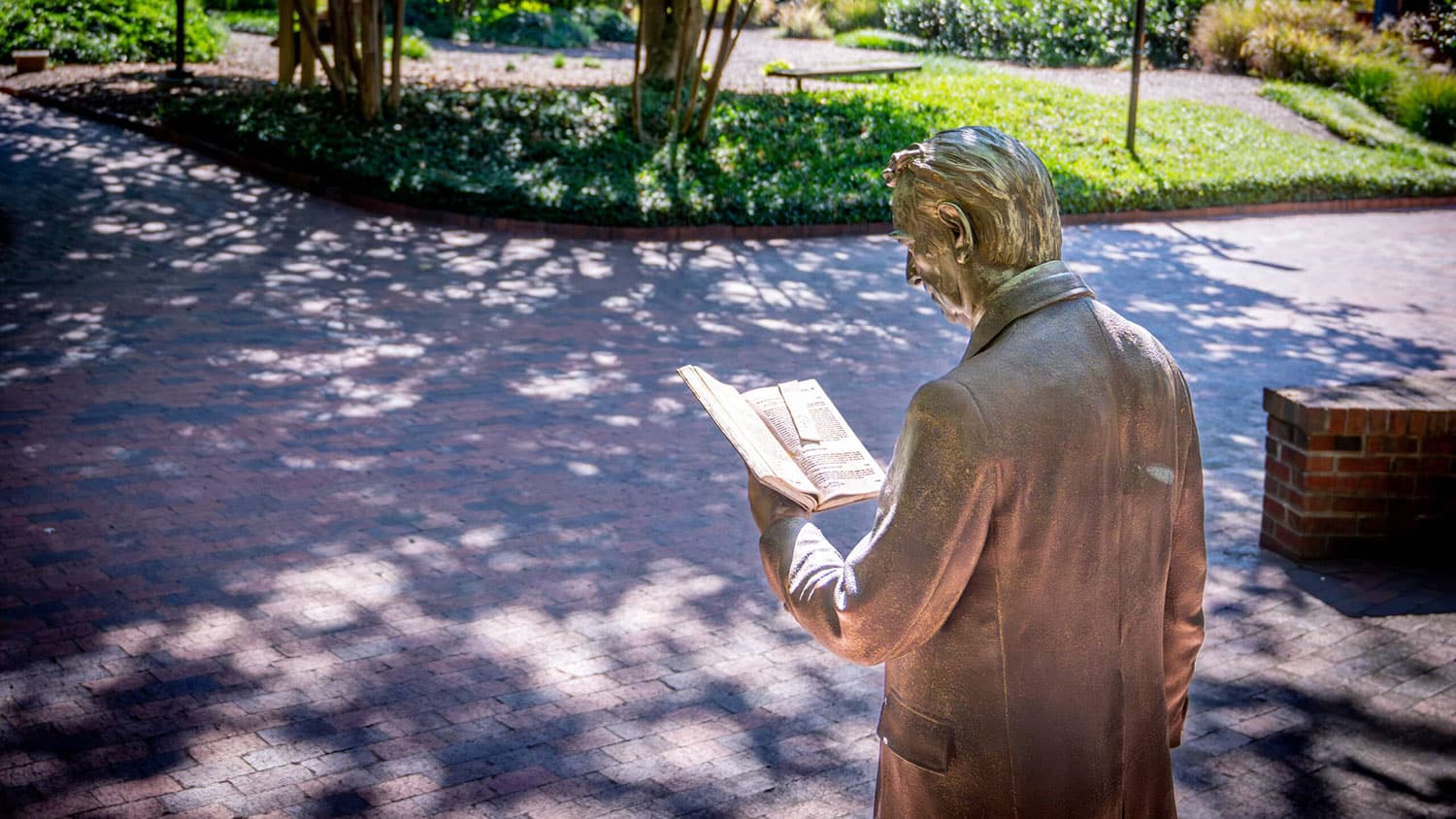The Bottle Freeze
When a whistle sounded on the Brickyard last Thursday, silence and stillness interrupted the normal hubbub between classes. Dozens of people abruptly froze, clutching plastic water bottles, diet soda containers and juice jugs that were officially banned from the state’s landfills, starting Oct. 1.
One student struck a chugging pose, bottle aloft. Another paused in mid jump shot, sporting a bottle tucked in his backpack. Others clustered with friends as if interrupted in conversation, bottles in hand.
When time expired on the five-minute bottle freeze at 11:40, the crowd scattered, recycling bins filled up, and Analis Fulghum, education and outreach coordinator for Waste Reduction and Recycling, breathed a sigh of relief. Participants had signed up via Facebook for the event, a brainchild of the North Carolina Department of Pollution Prevention and Environmental Assistance.
“I was pleased that the 280 people who signed up followed through with their commitment. It demonstrated NC State’s commitment to recycling on campus,” Fulghum says. “Overall, our office has been very pleased with the response from campus in support of the new law.”
The bottle freeze wasn’t the first attempt to focus campus attention on the new environmental regulations, which allow landfills to fine waste haulers like NC State if trash is contaminated with recyclable items.
Mindful of the bottle ban, Wolfpack Welcome Week organizers teamed up. At Friday Fest, you could find a glut of funnel cakes and fried candy bars, but no bottles of water.
Instead, the Office of Sustainability, Campus Recreation and the Union Activities Board passed out reusable NC State containers and compostable cornstarch cups. Rented water filtration trucks dispensed 575 gallons of water.
As participants tossed their trash, they were coached on sorting it into bins for composting, recycling and disposal.
“A five-hour concert with 5,500 people attending generates a lot of trash,” says TJ Willis, assistant director of Campus Activities. “We were working with vendors and participants to reduce the need for plastic and keep bottles out of the landfill.” A waste analysis showed that only 18 percent of trash was bound for the landfill, he added.
Rec Fest used the same strategies to reduce waste and kick the bottle habit.
“We hope the idea spreads,” Willis says. “Parents and Families Weekend picked up the compostable containers and water trucks, and we hope it will happen again.”
While special events help highlight the changes, organizers say that handling the bottle ban will be a campuswide, year-round effort.
Campus building liaisons can find online educational presentations about recycling and the new regulations. Facilities Operations has plans in place for diverting oil filters and wooden pallets, other items banned under the new regulations.
Fulghum urges faculty, staff and students to continue to recycle their plastic bottles, using one of 2,000 bins across campus. Just remove the cap, rinse the container and toss it into the bin. If you can’t empty the bottle and it still has liquid inside, it’s OK to leave the cap on.
- Categories:


